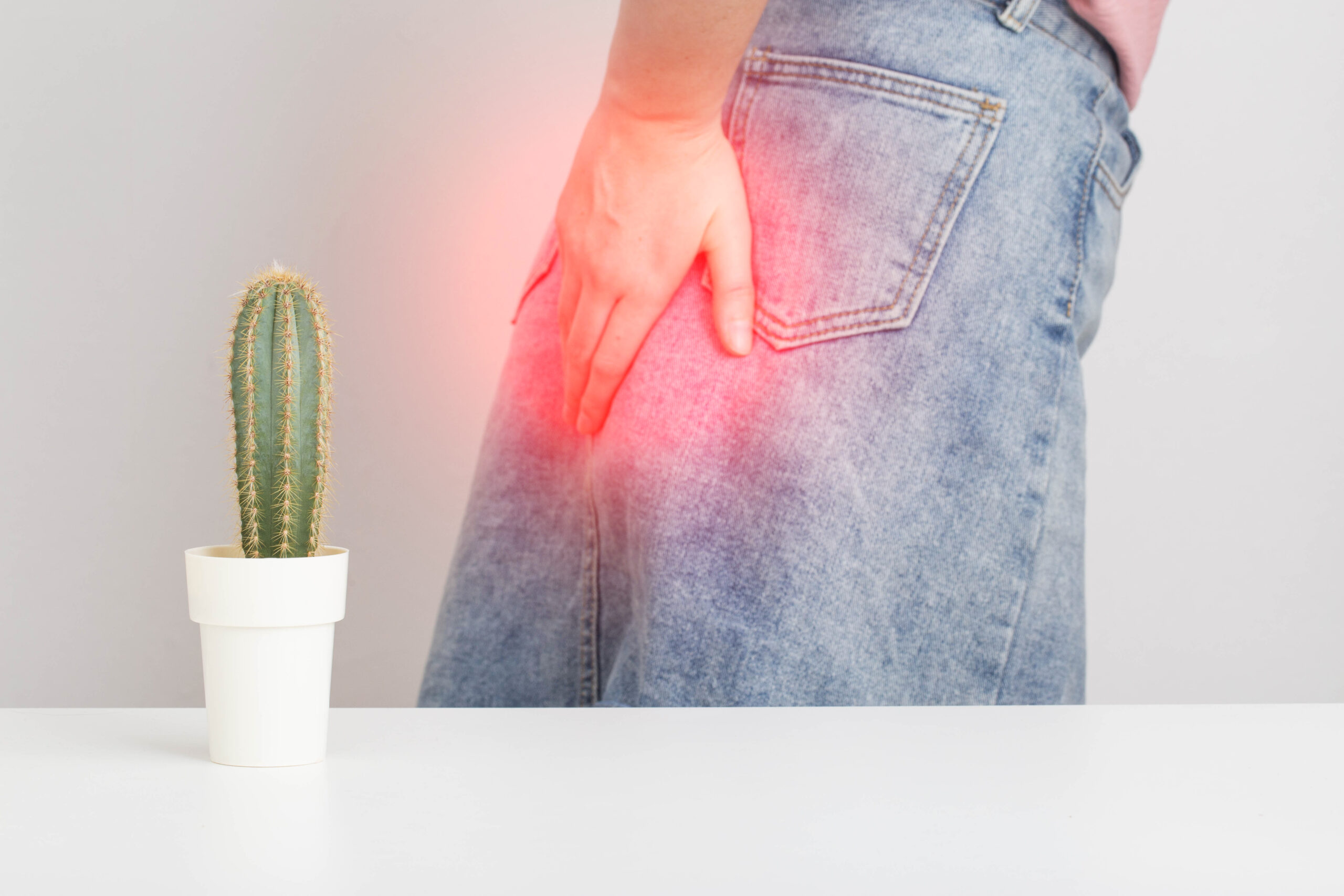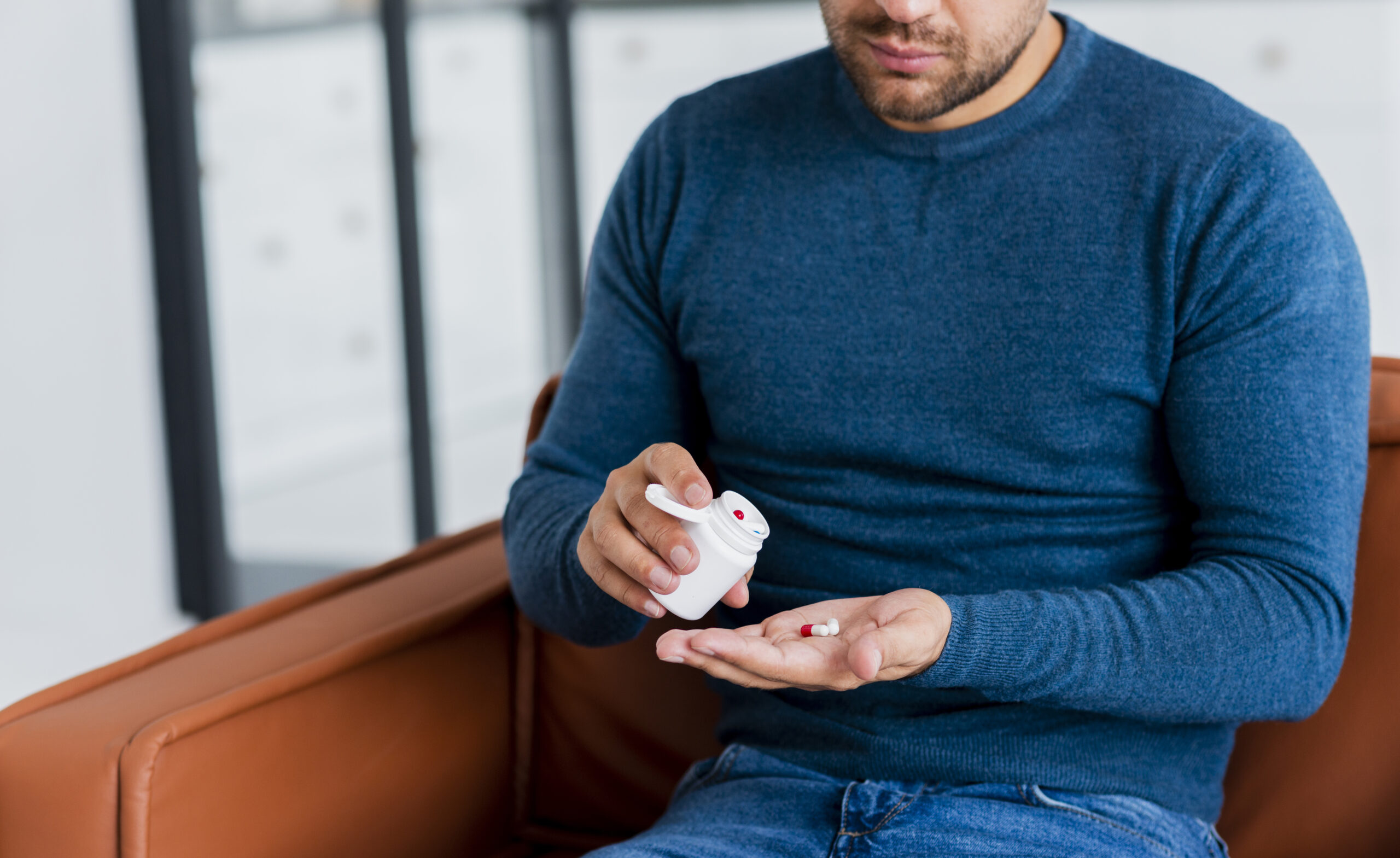Back To Top
Browse
 Haemorrhoids (also known as piles) may be an embarrassing topic for some people but it is actually a fairly common condition. With haemorrhoids/piles, you get small lumps around or inside your rectum and anus.
Haemorrhoids (also known as piles) may be an embarrassing topic for some people but it is actually a fairly common condition. With haemorrhoids/piles, you get small lumps around or inside your rectum and anus.
Some people do not experience symptoms but for some people, piles can be incredibly painful or itchy and you may notice blood when you go to the toilet. It is important to get help if you feel like you may have hemorrhoids because they can range from mild to moderate (which can be treated with medication for piles over the counter) to more severe stages of piles that require surgery.
Haemorrhoids, also known as piles, are swollen veins that have clumped together and can get bigger. You might notice lumps around your anus or inside your rectum. They can feel painful or itchy and you may notice some bright red blood or mucus after you poo.
Hemorrhoids usually develop because of increased pressure in the veins often due to constant straining. So if you are finding blood when you wipe, and you are sitting on the toilet for long periods of time straining, then you may be at risk of piles.
There is a network of veins in the walls of the rectum or anal canal that your poo passes through to go from the digestive tract to leave the body. If there is high pressure, these veins can become swollen with more blood.
This can become a problem when the swollen veins merge with other swollen veins or tissue around it; we call these combined structures haemorrhoids or piles. If you suspect you have piles, you should consult a medical professional.
You can get internal piles or external piles:
| Internal piles | External piles |
|
|
You might notice that the haemorrhoids/piles may protrude when you strain to use the toilet. Haemorrhoids can also become strangulated (these are called thrombosed piles) when their blood supply is blocked off. This might happen if a muscle traps a large haemorrhoid. Strangulated haemorrhoids are rare but very painful. If you get this, you may require hospital treatment.
The symptoms of piles depend on how serious or what stage the hemorrhoids / piles are (e.g Grade 1-4). Factors like size and location of the piles are also important. Some people have no symptoms at all. Here is an overview of the symptoms of piles:
| Piles grade | Symptoms |
| Grade 1 |
|
| Grade 2 |
|
| Grade 3 |
|
| Grade 4 |
|
Aside from the actual lumps, people often report additional symptoms:
Your doctor may prescribe some piles treatment medicine depending on the severity of the hemorrhoid. This might be creams or ointment to reduce the inflammation which can help relieve the itching and swelling. You might also benefit from painkillers or stool softeners.
Luckily, there are many treatment options for hemorrhoids/piles. The treatment of piles can range from over-the-counter piles cream and tablets as well lifestyle changes at the mild to moderate stage to prescription haemorrhoid cream at the more serious stage.
Prescription drugs for piles are usually for slightly more serious cases where over-the-counter treatments have not worked. Some prescription medication for hemorrhoids include:
For more very severe cases where haemorrhoid tablets and creams have not helped, banding treatment or other surgical procedures may be needed to cut out the hemorrhoids.
Cream for piles or over-the-counter painkillers are the first line medical treatments for hemorrhoids. You can buy them at pharmacies and they can effectively treat mild or early stage symptoms:
Aside from creams or oral medication for piles, there are several lifestyle and dietary changes that can help you prevent and manage hemorrhoids. For example:
| Eat a diet high in fibre | Eating more foods high in fibre can help make your poo softer which means it is easier to pass and you are less likely to strain Foods rich in fibre include: fruits, vegetables, grains |
| Drink more water | Drinking more water can help make your poo softer and easier to pass without straining |
| Exercise regularly | Regular exercise can reduce the pressure in your veins and prevent constipation |
| Try not to strain | Try not to sit on the toilet straining for long periods of time |
| Urge | Go to the toilet when you feel the need to go and try not to hold it in |
There are several types of piles medicine available, and each works differently to reduce swelling, bleeding and discomfort. The most common forms of haemorrhoid medicine include:
All of these treatments work by reducing inflammation, improving blood flow and easing symptoms such as itching, pain and bleeding.
Mild to moderate symptoms can often be managed with over the counter medicine for piles. These treatments are easily available and can be used without a prescription:
These haemorrhoids medications work best when combined with drinking more water, eating high-fibre foods and avoiding straining when using the toilet.
Prescription medication for piles is usually required when over-the-counter options are no longer effective, or symptoms are severe. You may need stronger haemorrhoid drugs if you experience:
Common prescription treatments include:
If prescription medicine does not help, your doctor may recommend banding, injections, or surgical removal of the haemorrhoids.
The best way to prevent hemorrhoids/piles is to make lifestyle changes. Hemorrhoids are formed because of veins swelling from high pressure and clumping together. Therefore, as you will see from the list below, the key point is to avoid creating high pressure in the veins in the rectum from things such as hard stools and straining.
Both treatments work, but they target different symptoms. Oral medication for piles (like flavonoid tablets) improves blood flow and reduces internal swelling, while creams and suppositories work directly on itching, pain and inflammation. For moderate or internal haemorrhoids, a combination of oral and topical haemorrhoid medicine is often the most effective approach.
Most over the counter medicine for piles is safe, but some people may experience mild burning, skin irritation or dryness from creams or suppositories. If symptoms worsen, or if you notice bleeding after using piles treatment medicine, stop using it and speak to a healthcare professional.
You may need prescription medication for piles if symptoms don’t improve after using medication for piles over the counter, or if there is persistent bleeding, severe pain, or prolapsed haemorrhoids. In such cases, doctors may recommend stronger haemorrhoid drugs, anaesthetic creams, or oral medication for haemorrhoids.
Yes, most people can manage mild symptoms with meds for piles, witch hazel wipes, or soothing creams. However, follow instructions carefully, avoid long-term use of steroid creams, and don’t use piles medicine on broken skin. If you have diabetes, are pregnant, or have internal bleeding, ask a doctor before starting treatment.
You should speak to a doctor if haemorrhoid medicine and lifestyle changes don’t help, or if you have Grade 3–4 prolapsed piles, heavy bleeding, or severe pain. In these cases, drugs for haemorrhoids may not be enough, and procedures like rubber band ligation or surgical removal of haemorrhoids might be required.
| Cookie | Duration | Description |
|---|---|---|
| cookielawinfo-checkbox-analytics | 11 months | This cookie is set by GDPR Cookie Consent plugin. The cookie is used to store the user consent for the cookies in the category "Analytics". |
| cookielawinfo-checkbox-functional | 11 months | The cookie is set by GDPR cookie consent to record the user consent for the cookies in the category "Functional". |
| cookielawinfo-checkbox-necessary | 11 months | This cookie is set by GDPR Cookie Consent plugin. The cookies is used to store the user consent for the cookies in the category "Necessary". |
| cookielawinfo-checkbox-others | 11 months | This cookie is set by GDPR Cookie Consent plugin. The cookie is used to store the user consent for the cookies in the category "Other. |
| cookielawinfo-checkbox-performance | 11 months | This cookie is set by GDPR Cookie Consent plugin. The cookie is used to store the user consent for the cookies in the category "Performance". |
| viewed_cookie_policy | 11 months | The cookie is set by the GDPR Cookie Consent plugin and is used to store whether or not user has consented to the use of cookies. It does not store any personal data. |